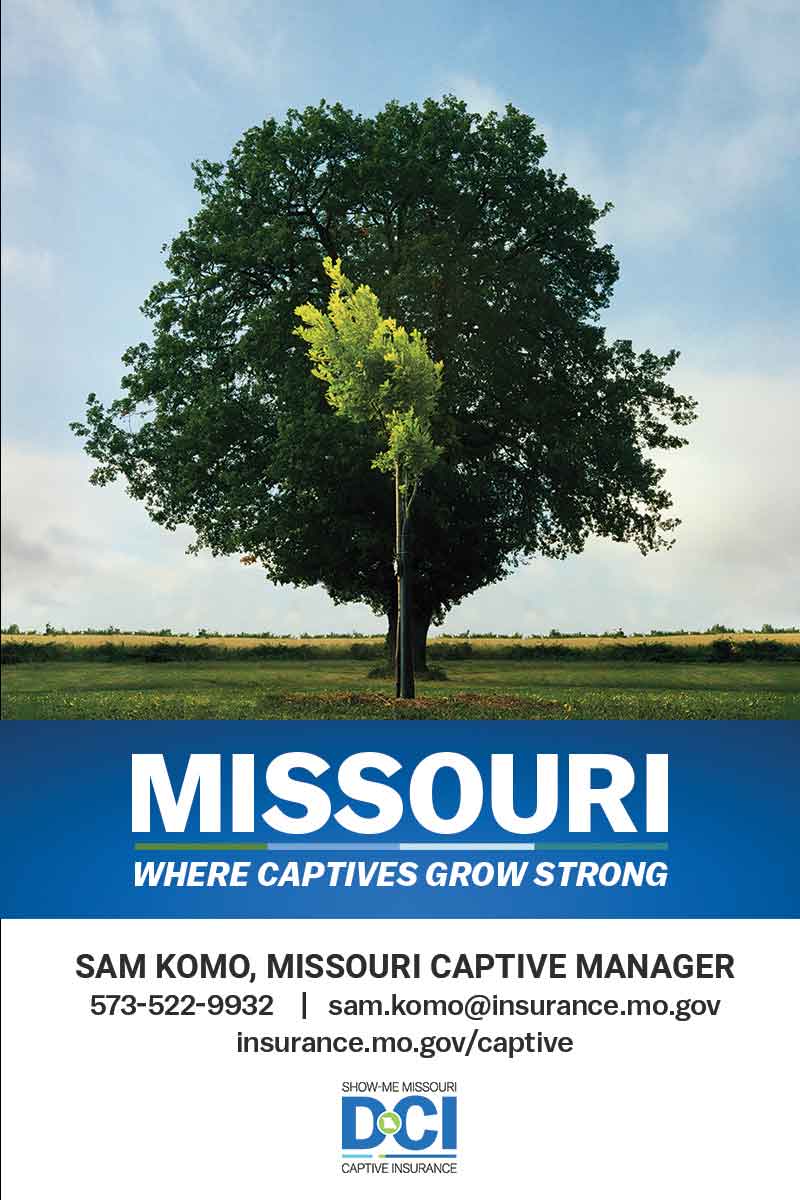Connecticut is located in the New England region of northeastern US, bordered by Rhode Island, Massachusetts and New York. The state is known for its large number of insurance professionals and its insurance hub is called the ‘insurance capital of the world’.
The captive insurance market in Connecticut was first established in 2008. At the end of 2019, the Nutmeg State had a total of 17 licensed captive insurers including two new captives of Fortune 500 companies, headquartered in the state.
The Connecticut Captive Insurance Association (CCIA) revealed back in February that Ned Lamont, who is serving as the 89th governor of Connecticut since 9 January 2019, proposed to amend the current captive insurance statutes by introducing senate bill no. 339 “an act concerning the insurance department’s recommendations regarding captive insurance companies” to promote new tax incentives for captives that establish or redomicile in the state, as well as introduce other innovative “risk-based” regulatory changes.
By proposing this legislation to help expand and grow the captive insurance industry in Connecticut, Lamont included a projected $7.5 million in new revenue for the state general fund in fiscal year 2021/2022. The proposed legislation would provide a “positive incentive” for captive insurance companies insuring risks in Connecticut, and for those domiciled in other jurisdictions, to return and open new foreign branch captive insurance companies and begin paying premium taxes in the state.
Governor Lamont’s proposal also aims to reduce up-front capital requirements for pure/branch captives, amends the definition of “association captives” and makes other important technical changes.
The CCIA board of directors supported the legislation at the recent insurance committee public hearing on 10 March, explaining that the proposals “will increase captive formations and speed- to-market in Connecticut by reducing the need for unnecessary start-up cash on hand, reducing on-going administrative costs, and providing captive owners relief from the tax on premiums placed directly with unauthorised insurers”.
The board further explained that the changes will produce “a positive economic benefit to Connecticut via increased captive formations and premium writings in the state. They will help bring revenue back to Connecticut from other states which collect premium taxes on these Connecticut-based companies’ risks”.
In the February announcement, the board said: “We strongly believe these important changes will result in Connecticut having one of the most innovative captive statutes in the country and will help to generate new premium tax dollars for the state.”
The board outlined that due to the COVID-19 pandemic, governor Lamont has declared a civil and public health emergency for the State of Connecticut, forcing the closure of the entire State Capitol and legislative office building complex until at least 13 April.
Due to the current COVID-19 pandemic, the captive legislation will likely be taken up later in the year during a special session that will convene once the public health crisis has abated and it’s safe to return to the complex, according to the board.
Steve DiCenso, CCIA president and, principal and consulting actuary at Milliman, believes that having Lamont’s support of these amendments to Connecticut’s captive law is a “huge continuing vote of confidence” for the growth of captives in the state.
He explains that it is also evidence of the positive impact of collaborative strategy between CCIA and the state government.
He notes: “The amendments themselves are quite innovative and cover a number of areas. They provide a positive incentive for captive insurance companies insuring risks in Connecticut but domiciled in other jurisdictions to return and open a new foreign branch captive insurance companies and begin paying premium taxes in the state.”
“The proposal also seeks to reduce up-front capital requirements for pure/ branch captives, amends the definition of association captives, and makes other technical changes,” he adds.
Lamont has also been supportive to Connecticut Foundation Solutions Indemnity Company (CFSIC), non-profit captive insurance founded to provide funding to people in Connecticut who have cracked forming in the surfaces of their homes. These cracks are due to their homes being built using concrete made from stone aggregate mined from a quarry containing pyrrhotite.
The CFSIC was set up to provide funding to cover the cost of repairs to homes as the traditional insurance was not covering it.
Connecting the dots
Touching on trends from the captive insurance industry in Connecticut, Janet Grace, programme manager, State of Connecticut Insurance Department, says: “As the captive market matures along with some standard commercial market hardening we anticipate companies will expand their captives to write more and varied risks.”
Grace notes that currently, captive insurers in the state underwrite a variety of traditional and non-traditional risks including casualty, property, She highlights: “We expect them to identify gaps in coverage as the commercial market tightens underwriting and insure those and emerging risks via a captive solution.”
DiCenso adds: “With the great work of our part-time executive director, Kathryn Dube, with the formation of two captives in late 2019 with billions of dollars in premium, with the governor’s stated support, and with a legislative proposal in tow, we can say that momentum is at an all-time high.”
Connecticut challenges
While Connecticut has momentum and its annual gross written premium figures makes the state a leading domicile, DiCenso explains: “We are still not as well-known as we would like to be. We want to have captive management firms know this is a place to do business.”
Grace explains that Connecticut approaches the regulation of captive insurers from a risk-based view and regularly reviews and updates its statutes and regulations to reflect its principles-based philosophy.
She says: “We anticipate the standard market will continue the momentum medical stop-loss, professional liability, flood, and custom coverages via insurance and reinsurance transactions. begun with InsurTech ventures who’ve been primarily mostly focused on personal lines products.”
Connecticut anticipates further growth in insurtech space, according to Grace, which requires the service providers and regulators to be nimble enough to support and regulate new strategic approaches to risk.
She adds: “The state is home to some of the best and most creative service providers in the risk business and our regulators are actively engaged in emerging approaches to risk.”
2020 and beyond
In recent weeks, the focus of many markets, including the captive insurance space, may have shifted to focus on the short- and long-term impacts of the COVID-19 pandemic.
According to Grace, the state anticipates “increased momentum in the coming year”, adding that Connecticut captive insurance helps businesses grow and prosper in the state.
that is thorough but at every step of the way business-friendly and particularly invite firms looking for regulators with real-world experience in alternative and unique risks to consider domiciling in the domicile.”
Grace notes that Connecticut has set its sight on second movers to the captive market including middle-market manufacturers and healthcare centres, key sectors of Connecticut’s markets.
“We value well-intended small or large company captive formations. The state is expecting to help ‘bring home’ many captives owned by Connecticut- based health care facilities and physician practices and look forward to welcoming them to Connecticut,” she adds.
DiCenso emphasises that Connecticut is “most excited” about the captive legislation amendments being passed.
He concludes: “The state is also excited about a number of our on-going events; a captive cafe breakfast series, where we are meeting quarterly to discuss key captive issues; and a 2020 collaborative to be held at Dunkin Donuts Stadium in Hartford, which will have several thought- provoking educational sessions.”
She explains: “We welcome all companies that seek a domicile that offers regulation





